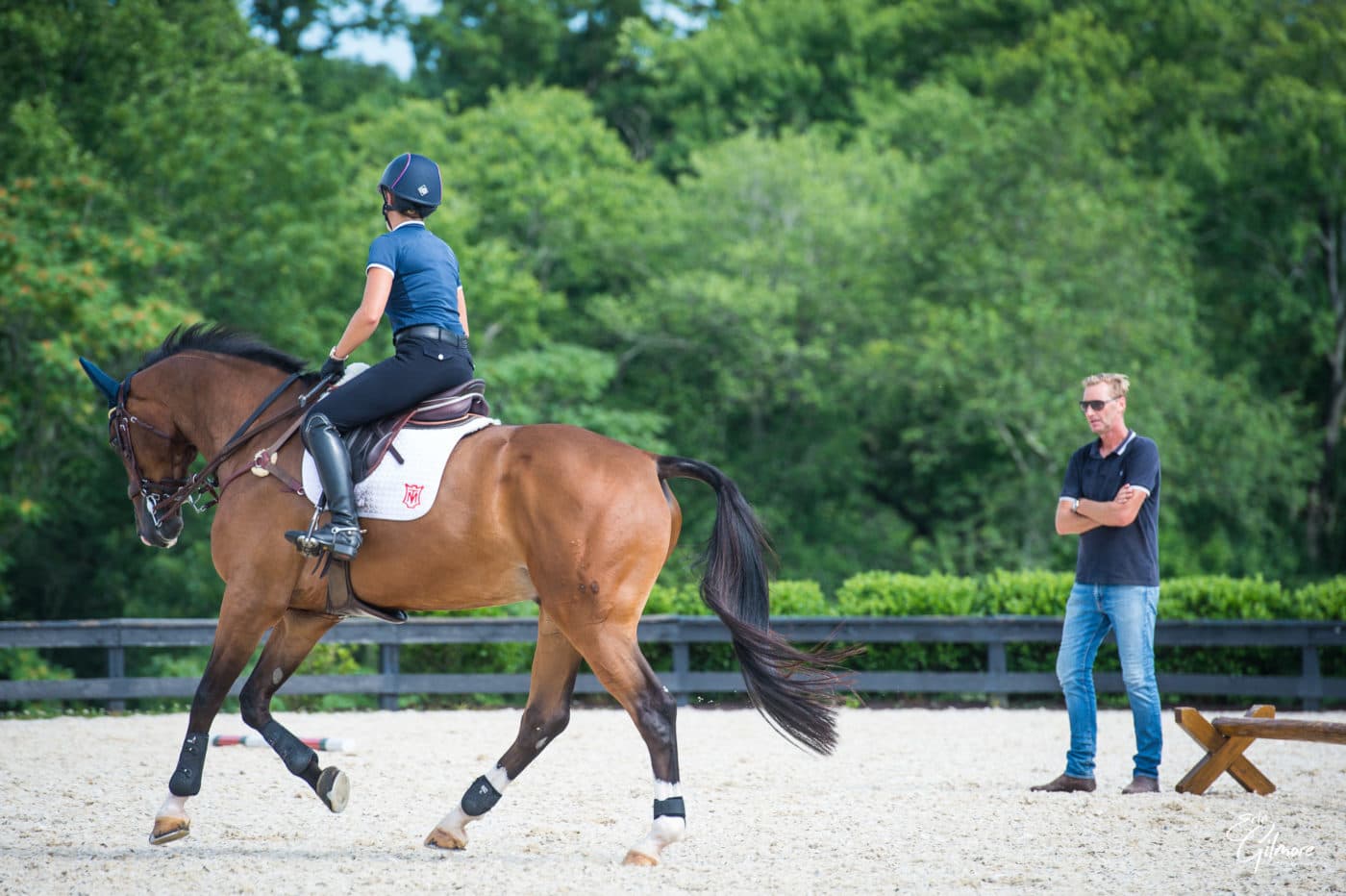A Case for Warming Up (and How to Do It Correctly) with Kyle Carter

Imagine: you are at the biggest sporting event of your life. The stakes are high, and you have spent countless hours preparing for it. However, you are expected to just show up and immediately perform. You cannot stretch or take a practice swing. You have no time to loosen up or sharpen your eye. Sounds like a recipe for disaster, right? Just like us, our horses need adequate time to warm up each day. A warmup is any preparation for work, and it is often the leading edge of that work. It is the small aid response that becomes the more advanced aid response.
I teach a lot of clinics, and I see a number of people skimp on the warmup at the expense of the ride. I rarely see proper warmups before lessons. At home, I often see the same thing. I wonder if it is just difficult to formulate a warmup plan. I think some people feel that a warmup for our horses is similar to stretching before a run or workout for ourselves, and they rationalize that skipping it is acceptable. It is crucial to understand the importance of proper warming up.
Muscles, tendons, and ligaments are more elastic if they have been properly warmed up, and this helps to prevent injuries. That alone is reason enough to include a proper warmup in your daily rides. Aside from helping your horses to be sounder, warming up also contributes to performance. Performance increases when the horse and rider are ready to answer questions. A quick response to our aids can only be achieved with adequate preparation, and that preparation comes in the form of a thorough warmup. When you are practicing a challenging exercise, you want your horse to be mentally sharp and ready to respond to your cues–this cannot happen without a warmup.
You’re at a competition, and you are about to get on for show jumping. You have walked your course and your horse is tacked up and ready to compete. How long are you planning to be on before your first jump in the warmup ring? I would guess that this is too important of a day to begin jumping without a purposeful flat warm up first. In order to be able to structure a proper warmup at competitions, you must practice them at home. Doing so will increase your confidence, as you are developing a plan for getting yourself and your horse ready to compete.
When I did jumpers, my coach would not let us jump a single fence before we had done 45-60 minutes of flatwork. This made the first jump very easy to conquer because the proper warmup made our horses so rideable. That length of time may not be necessary for every horse, but some version of that is required.
In every sport, athletes prepare with a full warmup of stretching and sport-specific skill sharpeners to get ready for training and competition. However, far too often, riders show up right on time for jump and flat lessons without any warm up. You must take this sport seriously, because your horses depend on you. They cannot get themselves ready for the first jump or movement, and we owe it to them to allow time for a proper warmup. With more time for proper preparation, your stress will go down and your performance will go up. You will feel like you are in a better place to create solutions within your rides.
So, give your horse the warmup they deserve and–as always–pat your horse.















